Brexit: Transfer of more powers to Stormont depends on power-sharing
- Published
- comments
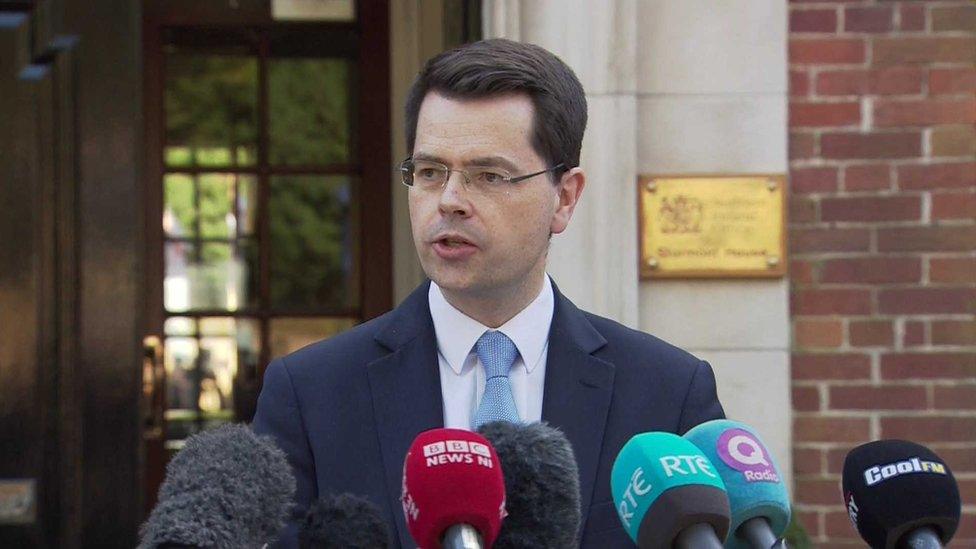
James Brokenshire said 'the challenge is not having a devolved government at this time'
The transfer of additional powers to Stormont after Brexit is dependent on power-sharing being restored as soon as possible, James Brokenshire has said.
The Northern Ireland secretary was speaking after Brexit Secretary David Davis wrote to the Stormont parties.
He gave details of the government's Brexit priorities for Northern Ireland.
Mr Davis' letter expands on the prime minister's suggestion that more powers could be passed to the devolved administrations.
Northern Ireland voted to remain in the EU Referendum by a majority of 56% to 44%.
Mr Brokenshire said "the challenge is not having a devolved government at this time".
He said new powers were dependent on "getting that executive back into place while the work ahead matters so much".
The Northern Ireland secretary added that the government will consult on plans to transfer new responsibilities to the devolved institutions as power "comes back from Europe to a UK level".
Mr Brokenshire said the consultation process was about "ensuring we have the right law in place to see there are no cliff edges, that we have that continuity".
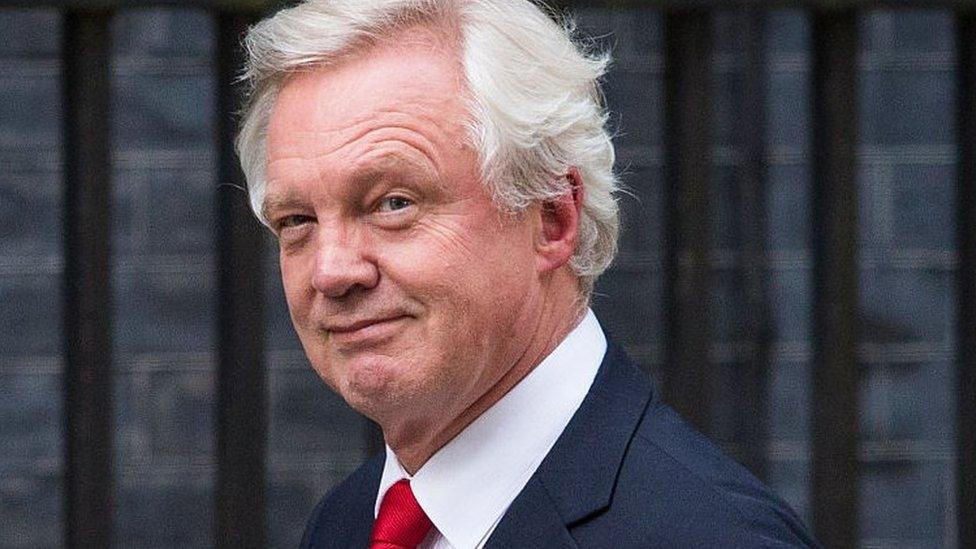
The letter sent by Mr Davis says that the need for common frameworks will also depend on the nature of any agreement with the EU
On resuming talks aimed at restoring devolution, the secretary of state confirmed he had been in touch with Irish Foreign Affairs Minister Charlie Flanagan.
Mr Brokenshire said "the focus has to be getting the parties together".
BBC News NI Economics and Business Editor John Campbell said: "In his letter, Mr Davis said the process of further devolution must be a "considered one" involving "intensive discussions" and cautions there will be areas "where common frameworks may be required".
"The letter says common frameworks will be necessary to protect the freedom of businesses to operate across the UK single market and to enable the UK to strike free trade deals.
"It adds that the need for common frameworks will also depend on the nature of any agreement with the EU.
"That suggests that, for some areas, further devolution will not necessarily mean much regulatory divergence from a UK norm."
Theresa May says she wants a 'frictionless' Irish border
The letter also says that in considering the replacement of EU funding, the government is "aware of the importance attached to those programmes which have had unique resonance in Northern Ireland".
It cites the Peace and Interreg funds saying they have had a role in "enhancing community cohesion across Northern Ireland and in border regions".
The letter also restates the UK government's commitment to maintaining the Common Travel Area and having an Irish border which is as "seamless and frictionless as possible".
Prime Minister Theresa May triggered Article 50 of the Lisbon Treaty on Wednesday, starting a two-year countdown to the UK's exit from the EU.
She said there would be "no return to the borders of the past" and said the Conservative Party has a "preference that Northern Ireland should remain part of the UK".
Mrs May's Article 50 letter says the government wants to avoid a return to a hard border between the UK and the Republic of Ireland, to be able to maintain the Common Travel Area and to make sure that the UK's withdrawal from the EU does not harm the Republic of Ireland.
- Published29 March 2017
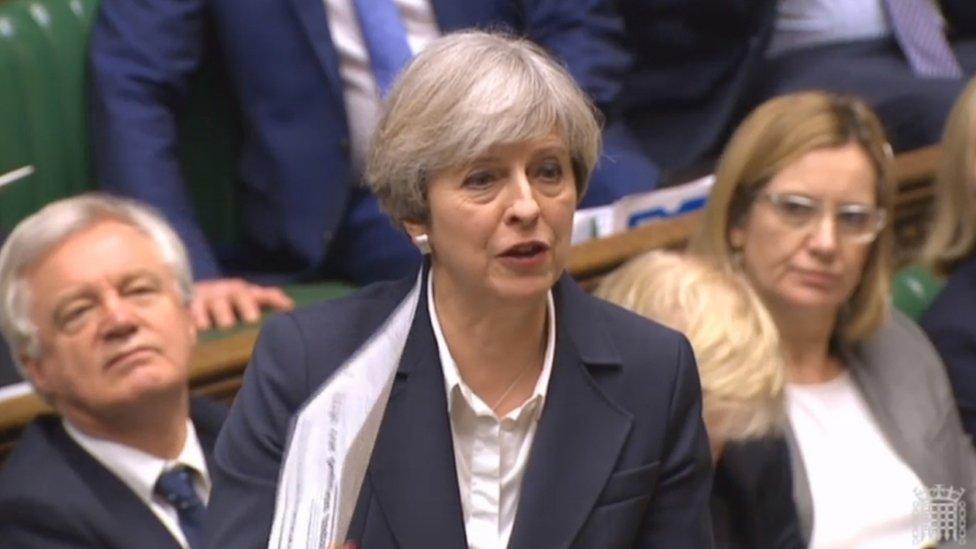
- Published30 March 2017
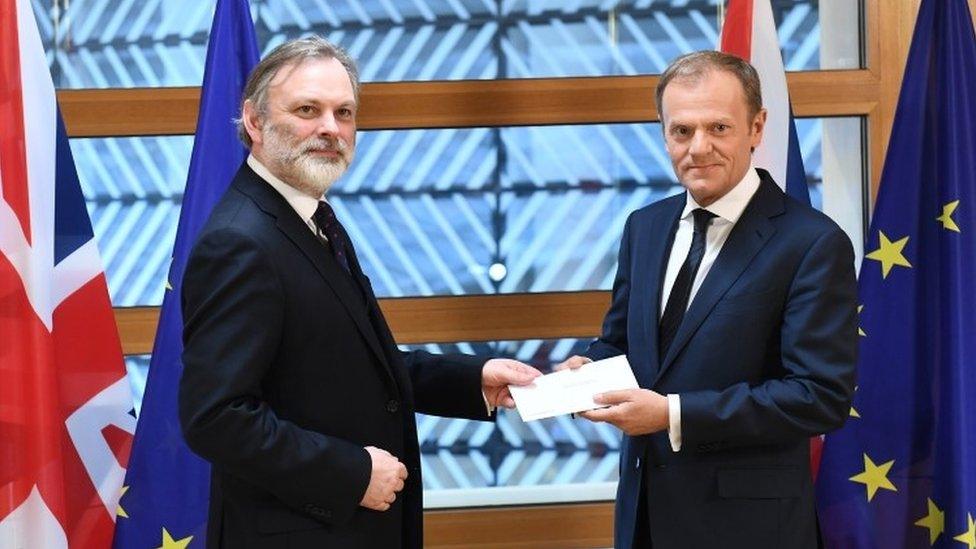
- Published28 March 2017
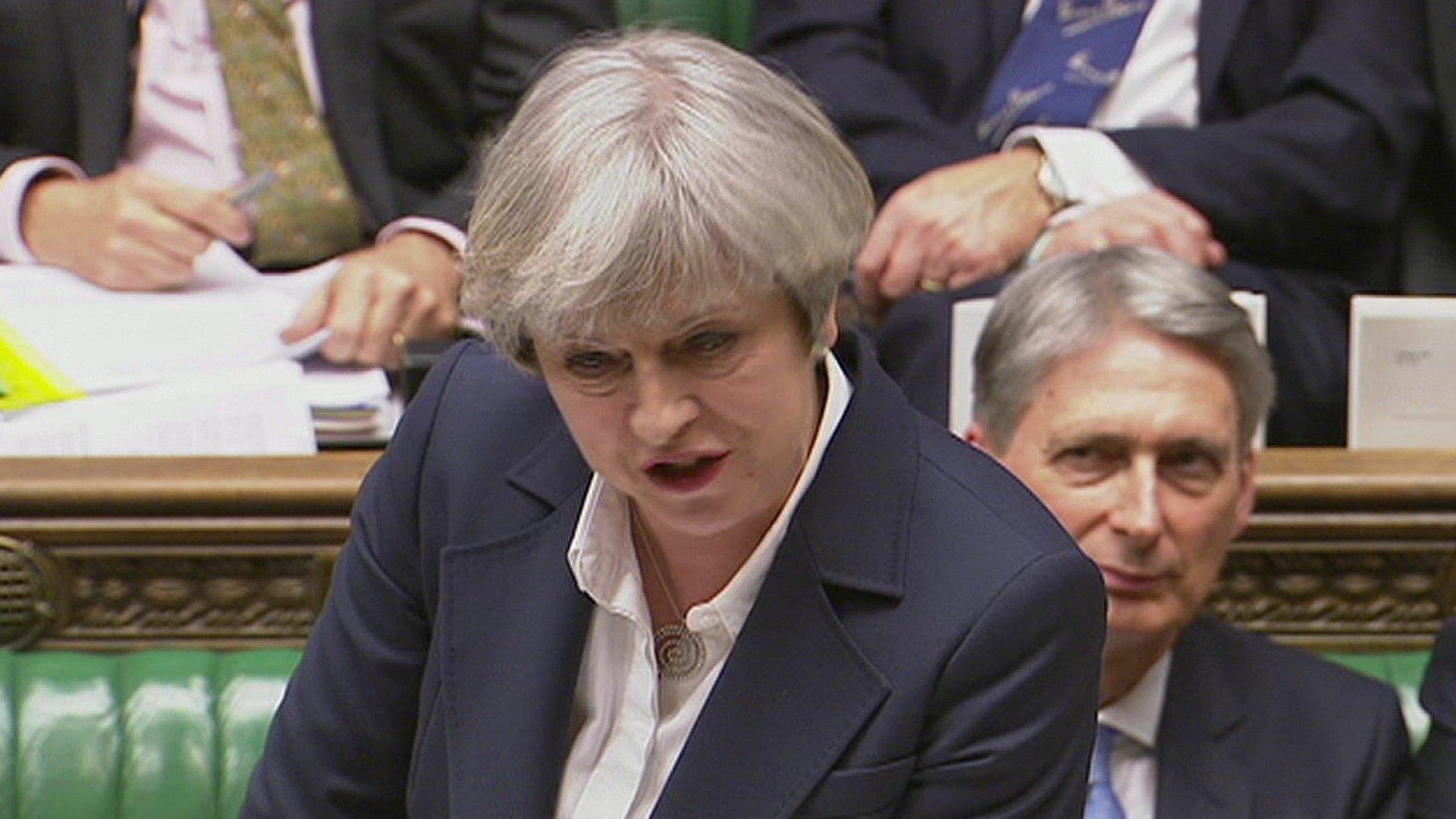
- Published14 March 2017
- Published29 March 2017
